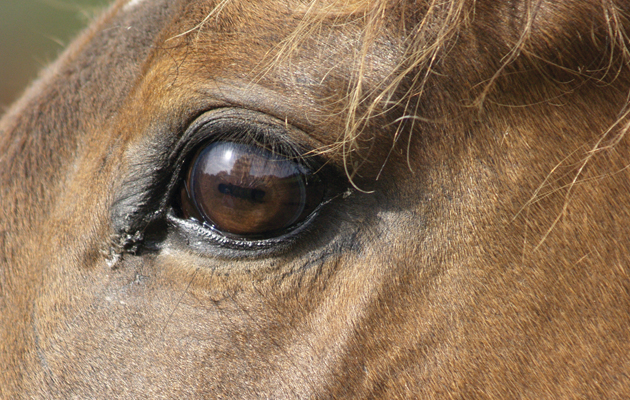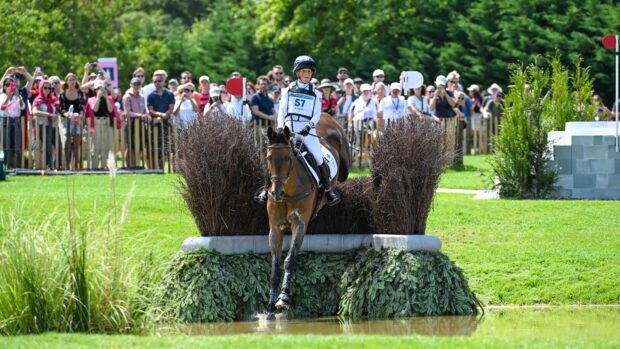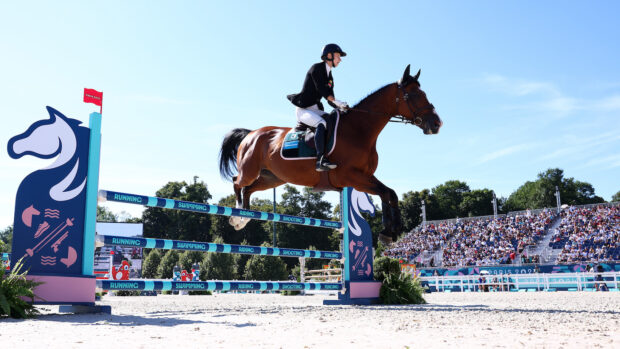Horses prefer gentle stroking to a standard groom, a recent study in France has shown, and they enjoy it so much that it leaves them with a “smile”.
The research into markers for horses’ emotions by Lea Lansade and colleagues looked at both facial expressions, behavioural and physiological markers (such as oxytocin levels and heart rate) to assess how the animals were feeling.
It concluded that facial expressions provided to be a “more sensitive” reflection of a horse’s response than behavioural markers, and that horses produced very specific expressions in response to positive human touch.
Two groups of 13 horses underwent 11 grooming sessions. In one group, only the hands were used on areas of the body that produced positive responses, while the other group was groomed vigorously all over, regardless of the horses’ reaction.
By session 11, horses in the gentle grooming group expressed significantly more contact-seeking behaviours than horses in the standard grooming group, which expressed significantly more avoidance behaviours. All facial expressions were recorded by “blind” observers — who could not tell what kind of grooming the horse was experiencing.
One year later, the same horses were brought back to the same “groomers” and it was discovered that the horses expressed distinctive facial expressions similar to those in the first part of the study.
The gently groomed horses were often observed with their necks moderately raised, their eyes half closed and their upper lips extended and either immobile or twitching and their ears pointing backwards almost in line with the nose, the study said.
In contrast, horses from the standard grooming group were more frequently observed with their neck in a high position, eyes wide open or showing the whites, contracted lips with the corner of the mouth raised jerkily and asymmetrical ears.
The expressions were also found to be almost exclusive to each group.
“The results of the facial expressions show that horses had a memory of the relationship established one year previously,” said the study, which was published in Scientific Reports.
“[It] demonstrated that horses presented contrasting behaviours according to the kind of grooming experienced (gentle vs standard), suggesting opposite emotional valences, and that specific facial expressions were associated with them.
“These expressions appear to be more sensitive than behavioural indicators because they alone enabled different emotions to be detected according to the group one year after the end of treatment.”
The researchers believe horses are an “appropriate model” for studying facial expressions in animals, as they benefit from “complex face muscles that allow it to express a wide range of facial movements, including many that are also seen in primates.”
Continues below…

Are you angry or happy? Horses can tell by your facial expressions
Horse can tell a human’s emotions by our facial expressions, according to new research

Horses can tell when human voices and facial expressions don’t match
Research found the horses reacted differently when pictures of human emotions did not match those in recorded voices

Subscribe to Horse & Hound magazine today – and enjoy unlimited website access all year round
They are also useful for study as they are a social species that “establishes sophisticated and long-term social relationships, thus requiring effective communication. Given the fact that it is predominantly a visual animal, it is reasonable to think that it uses postural and facial expression to communicate.”
The study of animal emotions is an emerging field of research and previous reports have also shown that horses’ facial expressions can reveal how they are feeling.
Practical applications for the study of equine facial expressions have already become established, including as a tool lameness studies, notably in Sue Dyson’s ethogram. Vet, animal behaviourist and Edinburgh lecturer Gemma Pearson also uses cues such as studying the shape where the upper eyelid meets the head to help vets predict horses’ reactions.
For all the latest news analysis, competition reports, interviews, features and much more, don’t miss Horse & Hound magazine, on sale every Thursday.





